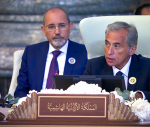You are here
WHO’s lack of focus risks global health
Jan 27,2018 - Last updated at Jan 27,2018
As one of 34 executive board members of the World Health Organisation (WHO) meeting in Geneva last week, Jordan shared a pivotal role in setting the global health agenda for the next year.
WHO’s work has never been more important to address serious and evolving international health threats. It is only a matter of time before there is another global influenza pandemic to match the devastating outbreak of 1918, and, as recent outbreaks of Ebola and Zika have shown, new and deadly diseases can emerge at any time.
As a UN organisation to which almost every country in the world belongs, WHO should make strengthening national health systems and coordinating defences against transnational disease its priority. But it’s often hard to know if the organisation has any priority.
Superficial involvement in a ballooning number of health areas has made it a directionless, ineffective and inward-looking player in an increasingly crowded global health scene.
WHO’s tendency to do a lot poorly has seen it fail in its core business of leading international action on transnational disease outbreaks.
Take the organisation’s response to the West African Ebola crisis of 2014. An expert panel convened by Harvard Global Health Institute and the London School of Tropical Medicine criticised WHO for its “catastrophic” delay in declaring a public health emergency.
The worry is that WHO will fail to handle the next inevitable global pandemic, leading to needless loss of life.
Funding is part of the problem: WHO spent just 5.7 per cent of its 2014-15 budget on disease outbreaks, a 50 per cent drop on the previous two years.
WHO’s core budget, paid by member governments, fell from $579 million in 1990 to a feeble $465 million this year. To put this in context, Irbid’s new Princess Basma Educational Hospital, with only 500 beds, is costing $70m to build.
WHO has topped up its budget with project-based donations from countries and big charities, which now constitute 80 per cent of its overall income. But that has cost the WHO its strategic independence.
Alongside global health staples like tropical diseases and immunisation, WHO now publishes recommendations on subjects from adolescent health and headaches to traffic safety and prisons.
Jeremy Farrar, director of the UK-based global health research charity the Wellcome Trust, argues WHO is being undermined by its inability to focus on a few core issues.
“It’s so thinly stretched,” he told Reuters. “There’s arguably no organisation on earth that could cover all those [topics] at sufficient depth to be authoritative.”
Bizarrely, large parts of the executive board meeting’s agenda were dedicated to discussion of how to dilute the intellectual property (IP) protections that drive discovery of new health technologies.
Given the scale of today’s global health challenges, it’s not clear how repeating a tired and long discredited debate about IP and access to medicines will help. The vast majority of treatments prescribed in both developing and developed countries are off-patent and therefore unaffected by IP rules, yet far too many still do not have reliable access to them.
The real reasons for this have been well known for decades. There are too few doctors and clinics, and a lack of social and health insurance to protect people from the cost of healthcare expenditures (something WHO itself implicitly recognises in its efforts to promote universal healthcare). In many places, weak supply chains and poor infrastructure separate people from the treatments they need.
A narrow and divisive focus by WHO on IP may tick political boxes, but it does nothing to improve health and will only lead to more unproductive debate. It looks like a power grab by WHO staff to intervene in areas that are best left to national governments.
In 2017, former Ethiopian foreign minister Tedros Adhanom was elected as new Director General on a mandate to reform and consolidate the WHO. Almost immediately, he appointed no fewer than 14 assistant director generals to oversee a huge number of programme areas. This is not the work of a reformer.
It was the first executive board meeting under Tedros’ leadership. Jordan and other member states need to steady the ship. To maintain its relevance, WHO must get back to basics and do a few things well, not many things poorly. It must therefore unite nations around practical solutions, not divide them in pointless debates.
Philip Stevens is director of Geneva Network, a UK-based research organisation focusing on international trade and health issues













